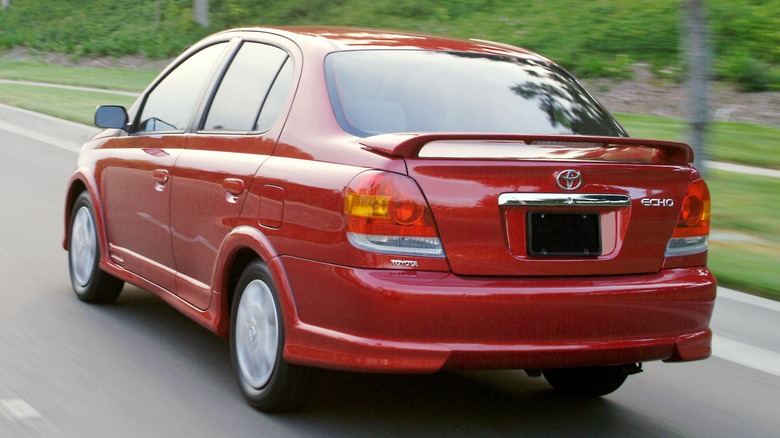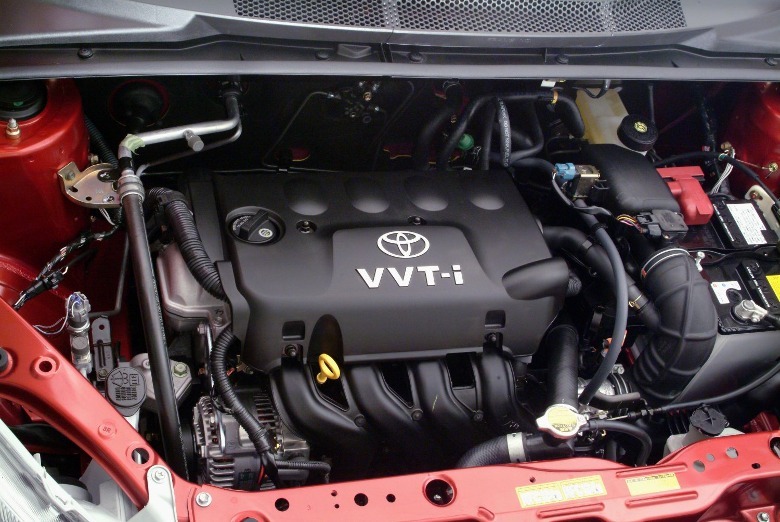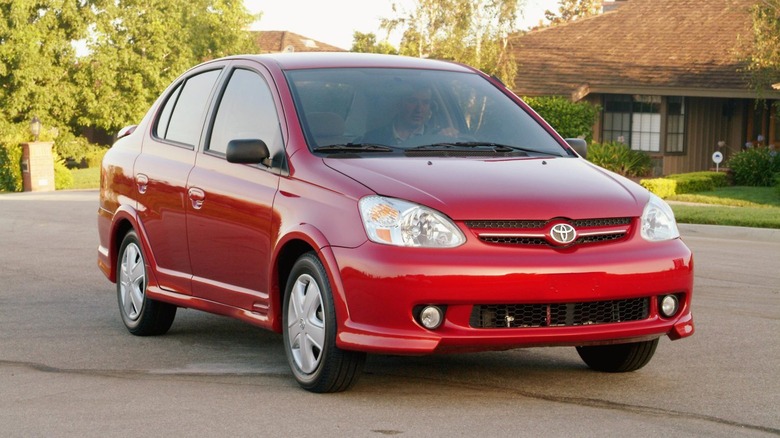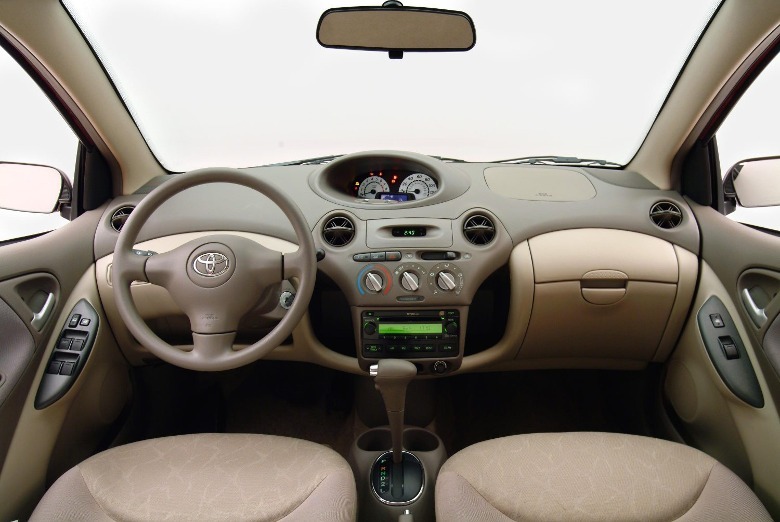The Reasons Why The Affordable Toyota Echo Was A Total Flop
Japanese auto giant Toyota is known for having the right car for every conceivable demographic. It also thrives on its reputation for churning out utterly reliable and durable cars. However, in the late 90s, Toyota had a problem: Its cars typically appealed to older (or conservative) buyers who couldn't care less about sporty handling or styling.
Enter "Project Genesis," Toyota's initiative to lure younger buyers into driving a Toyota. The project led to three new cars: the Celica, the MR2 Spyder, and the Echo compact sedan. The Celica and the MR2 are two of the most revered sports cars in Toyota's lineage, but the Echo will forever be known as a compact that came up short in the hearts and minds of its intended buyers.
The funny thing is it had nothing to do with its dinky, yet modern 1.5-liter four-cylinder gas engine. Equipped with Toyota's variable valve timing (VVTi) intelligent technology, the Echo has 100 horsepower and 100 pound-feet of torque, all routed to the front wheels with a standard five-speed manual, or optional four-speed automatic. It rushed from 0-60 mph in about 8.5 seconds, reasonably decent for a front-wheel-drive econobox.
The Toyota Echo was barebones and expensive
Toyota enjoyed a modicum of success with the Echo when it launched in 2000, selling 50,000 units during its first year. However, reality didn't take long to rear its ugly head. With a base price of about $11,000 to $13,000 (about $19,000 to $22,000 in today's money, adjusted for inflation), the base Echo had no power steering, no air conditioning, no power locks, a CD or cassette stereo, a rear defroster, or folding seats. Everything is an optional extra.
The worst part is the young buyers it was targeting saw the Echo as a staid compact car with nothing "cool" to offer, except for its lively engine and somewhat sporty-feeling five-speed manual box. The tall-boy styling was hit-or-miss, and the proportions were polarizing, for lack of a better phrasing. Merits include a nice-looking two-tone interior, good fuel economy, and decent cabin room, but that's about it.
Despite rocketing to the sales charts in 2000 (mainly due to the success of its predecessor, the Toyota Tercel), Echo sales fell through the roof in 2004, with only 4,000 units sold to American buyers. Toyota pulled the plug in 2005, but the Echo remained in production worldwide as the Yaris. The Echo's demise didn't stop Toyota from creating the Scion brand in 2003, but Scion faded into obscurity in 2016 — proof that even Toyota doesn't get it right each time.



